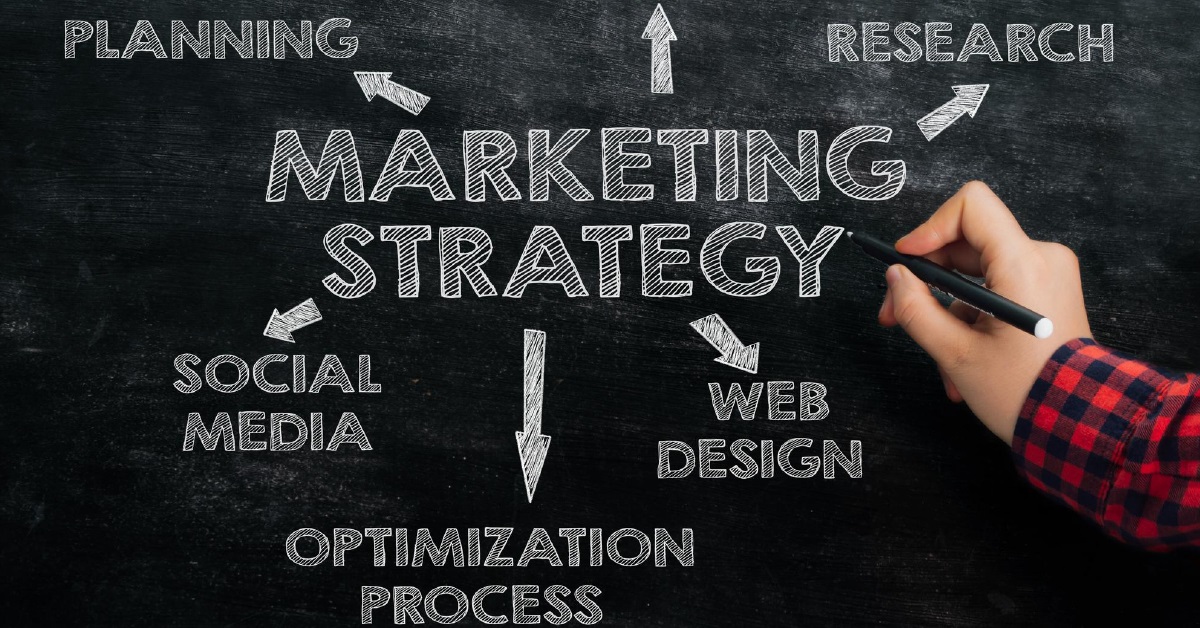4 min read
Table of Contents
What Is the Evolution of Marketing Strategies?
“Marketing evolution” refers to the different phases that companies have gone through in their search engine optimization for new and inventive strategies to create, retain, and expand revenue streams from client sales and relationships.
Persuading consumers to purchase a good or service is known as marketing. Since commercialization first began, we have been observing this act of marketing, and as time has gone on, we have also been observing the evolution of marketing.
It is imperative that you comprehend contemporary marketing techniques and strategies until and unless you have a clear understanding of the marketing concept in its entirety, including how it evolved.
The idea behind marketing is to continuously increase a company’s profit by utilizing various strategies.
An Overview of the World Marketing Strategies
The most fundamental point is that your product or service will not be sold unless and until someone learns about it.
You must, therefore, acknowledge the significance of marketing:
- Establish Brand Recognition: Raising people’s awareness of your brand is essential if you want to sell your product.
- Inform Them About The Goods: You must inform them of the product’s features and how it will assist them in resolving issues in their day-to-day lives.
- Employ Various Marketing Strategies: We can utilize a variety of marketing techniques to increase public awareness of the problem we are talking about.
- Current Generation: Given that today’s youth are becoming increasingly sophisticated and educated, you will need to use your best arguments to persuade them to buy your products.
- Campaign for the best digital marketing strategies: In addition to bringing in traffic and users, your internet marketing campaigns also aid in keeping them around by retargeting or retaining them.
- Relationship Management with Customers: Through your marketing campaigns, you can maintain a positive rapport with your clientele.
- Enhancement of value: Irrespective of the quality of your product or service, its worth will only be realized if its existence is communicated to others.
Since marketing analytics is unquestionably the foundation of every business, we can never undervalue its significance.
If your marketing team is not able to perform effectively, your company will be in serious trouble. Please select the right strategies and implement them at the right times to optimize the success of your marketing campaigns.
Nonetheless, let us embark on a historical tour to examine the development of marketing techniques and the origins of numerous modern marketing approaches.
- Production Concept
- Product Concept
- Selling Concept
- Marketing Concept
- Social Marketing Concept
The Production Concept
It is critical to first comprehend the background of mass production and technology in order to comprehend the production concept. By the middle of the 19th century, the United States had witnessed the start of the Industrial Revolution, propelled by the use of steam power. Even though a large portion of the population was still engaged in agriculture, the growth of industry and commerce drew millions of factory workers into cities and towns. Households had unprecedented access to a plethora of manufactured goods at an unprecedented pace.
The production concept assumed that consumers’ primary concerns were product availability and price, rather than specific product features. Consequently, businesses focused on mass distribution, cheap costs, and high production. Businesses did not need to do much marketing or sales because the public’s appetite for mass-produced goods was so great. It is believed that the production concept ran from shortly after the Civil War (1861–1865) through the 1920s. For instance, revolvers were first mass-produced by Samuel Colt’s business in 1835. The division of labour was first used in the mass production of watches and clocks by the Waltham Watch Company, which was established in Waltham, Massachusetts, in 1850.
Read More: Marketing Automation for B2B: Strategies to Win in the Business World
The Product Concept
The product concept was dominant from the 1920s to the 1950s. As product availability vanished, buyers started to favour goods that provided superior performance, quality, and cutting-edge features. Consequently, businesses focused on producing high-quality goods and continuously enhancing them. Among the issues with this way of thinking is that marketers could develop “marketing myopia,” or the blind spot where they fail to see what the market really needs or wants. Take into consideration how railroad marketers failed to recognize the increasing competition from buses, cars, and aeroplanes.
Theodore Levitt, the author of Marketing Myopia, states that “the decline in the demand for passenger and freight transportation did not stop the railroads from growing.” That expanded. The reason the railroads are having difficulties now is not that other vehicles, such as cars, trucks, or even telephones, met the need, but rather because the railroads failed to do so. Their assumption that they were in the railroad business rather than the transportation business caused them to allow others to steal their customers.
The Sales Concept
Mass production had stopped being the exception and had become the standard by the 1950s. Suppliers had relatively well-supplied the market, and competition had grown over time.
The goal of marketing has changed over time from making goods that consumers desire to attempting to convince them to buy through personal selling and advertising. The sales concept fundamentally believed in coaxing businesses and consumers into making purchases, advocating that companies should sell what they make rather than produce what customers request.
The Marketing Concept
The foundation of the marketing idea is that an organization can only succeed if it meets the needs and desires of its customers. Consequently, businesses started concentrating on the needs of their customers before creating products, as opposed to creating products and then attempting to “sell” them to customers. Relationship marketing, which focuses on building enduring connections with clients to guarantee recurring business, establish stable partnerships, and cut expenses, was born out of the marketing concept.
The Societal Marketing Concept
Sociological marketing is a straightforward concept, to put it briefly. Businesses that use effective marketing strategies balance the needs and wants of their customers with the company’s resources and the long-term interests of society. The idea highlights the obligations that businesses have to society. This means attending to the needs of consumers and companies right away while also considering the ways in which decisions made in the marketing domain could impact future generations’ ability to meet their own needs as a result of environmental consequences.
Conclusion
Marketing evolved over a long period, going through multiple phases, and what we see today is the outcome of those refinements.
We ought to acknowledge the significance of marketing. Marketing is unquestionably the foundation of business, and in the near future, we will witness new facets of this field.
The process of marketing is constantly evolving and will continue to do so on a regular basis.
Published: December 12th, 2023









